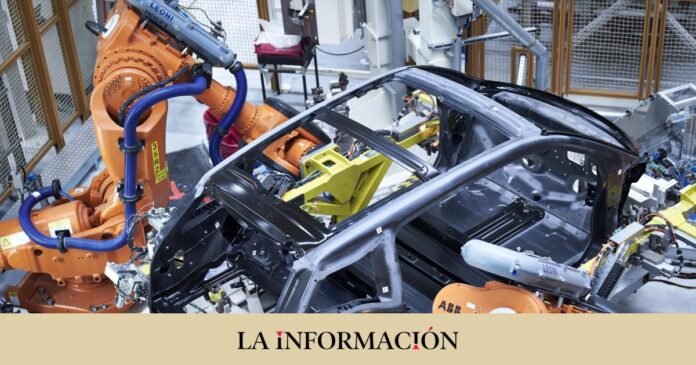The decline in demand has caused a drop in activity in the private sector in the euro zone, especially in the manufacturing sector. This July’s Composite Purchasing Managers’ Index (PMI) has fallen to 48.9 from June’s 49.9, marking its lowest figure in eight months.
Activity in the services sector has not experienced such a marked decline, reaching a PMI of 51.1 points compared to 52 last month, which is its worst level in the last six months. The manufacturing PMI, on the other hand, has dipped to its lowest in the last 38 months, falling to 42.7 compared to 43.4 in June.
Cyrus de la Rubia, the chief economist of the Hamburg Commercial bank, has declared -according to Europa Press- that the manufacturing sector is “the Achilles heel” of the euro area and has observed that if activity in the service sector continues to deflate, it is likely that the European economy will continue to lose strength.
Lower the amount of new orders
The authors of the PMI survey highlight the general deterioration in demand conditions in July, with a further drop in the volumes of new orders received.
“The decline in new orders far exceeded that in total activity at a rate not seen since February 2009, suggesting that companies will try to reduce their total activity further in the coming months in response to the increasing demand environment,” they say. In fact, the worsening of the loss of new orders in the industrial sector was accompanied by the first drop in new orders received in the services sector in the last seven months.
Due to fading confidence and a worsening demand environment, firms reduced hiring in July, leading to the smallest monthly increase in employment since February 2021.
On the price front, the PMI survey found that inflationary pressures eased in July, as rising deflation in the manufacturing sector was compounded by slower inflation in the services sector. The input cost inflation rate in both sectors fell again in July, falling for the tenth consecutive month to reach its lowest since November 2020, while the average prices charged for products and services continued to rise, albeit at the slowest pace in 29 months.
“The latest reading of the PMI index will not please ECB executives as prices in the private sector continue to rise, driven exclusively by the important service sector,” De la Rubia said.

